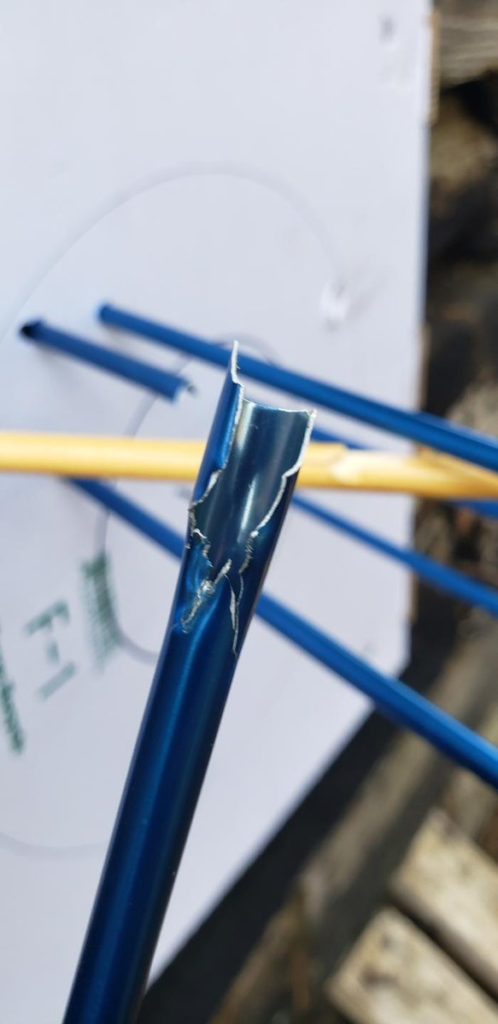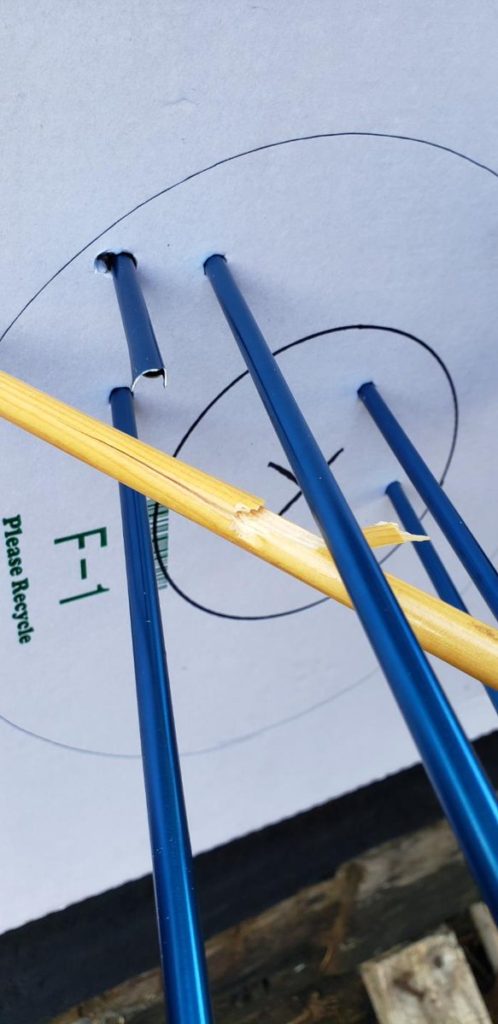Malik
 Auror
Auror
My wife and I were plinking the other day, standing at two different points in the yard shooting at the same target, from about 15-20 yards. She shoots a 30-lb. recurve; I shoot a 55-lb. recurve.
My arrow is the wooden one, which, even with a simple target tip, broke her aluminum arrow in half on contact.
It's hard to overstate the power of a well-tuned, hunting-weight bow inside about 30 yards.

Her next shot then broke my arrow, because that's how we roll.

My arrow is the wooden one, which, even with a simple target tip, broke her aluminum arrow in half on contact.
It's hard to overstate the power of a well-tuned, hunting-weight bow inside about 30 yards.

Her next shot then broke my arrow, because that's how we roll.


 Maester
Maester
 Myth Weaver
Myth Weaver
 Acolyte
Acolyte